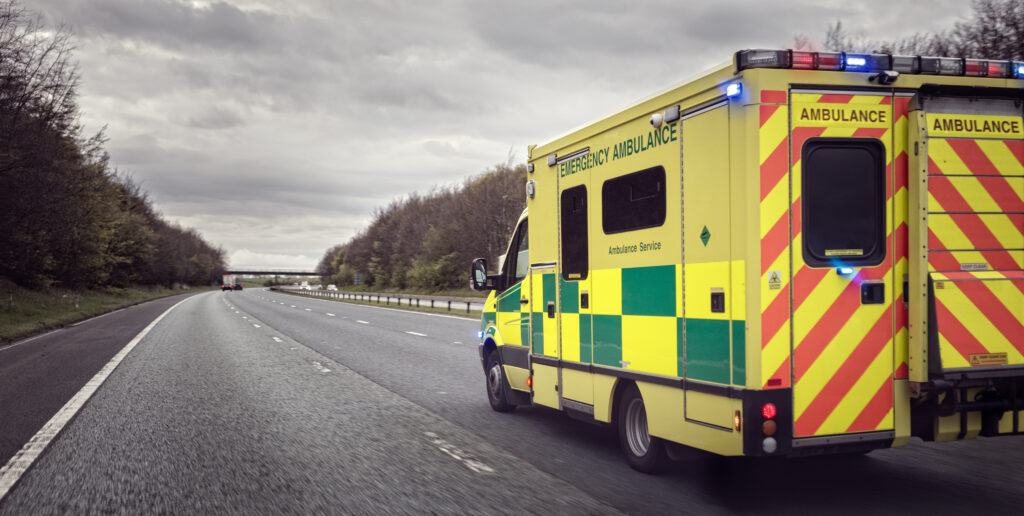NHS Scotland is in the midst of a deadly epidemic, and it’s having a devastating effect – on staff attrition rates, on quality of care and on patient outcomes.
In 2022 alone, there were 724 reported cases of bullying in NHS Scotland, and those figures are just the tip of the iceberg, as most instances of bullying aren’t reported. A huge 20% of staff surveyed in NHS England said they had been bullied. Using those figures, a more likely estimate would be 30,000 people in NHS Scotland having experienced bullying in the past year.
The effects of this behaviour are significant. 80% of people who experience bullying suffer from overwhelming anxiety as a result, while 50% suffer from depression and 29% experience suicidal thoughts.
People working in NHS Scotland are under intense pressure, with record numbers of staff experiencing stress, mental health problems or simply leaving the NHS altogether.
Now more than ever, we need a cure for this problem. And fast.
However, to really get the results we need across NHS Scotland, it’s not simply a case of wiping out bullying. We need more than just civility for staff and patients to thrive. We need kindness.
The power of kindness, positivity and praise
There’s a huge amount of evidence to show that the presence of kindness, positivity and praise within the workplace boosts teamwork and improves staff engagement, in turn, leading to better staff and patient wellbeing.
Studies show that when NHS staff even witness kindness in stressful situations, they perform better, and outcomes for their patients improve. Those who work in kinder teams are happier, more productive and less stressed overall, which leads to lower mortality, fewer mistakes, and better outcomes.
So how do we move from an epidemic of bullying and mistrust, to a kinder environment in which everyone thrives?
Here are three practical approaches you can take to embed kindness in your trust, starting today:
1. Implement the ‘ABC’ model of appreciation
Over the past few years, we’ve asked over 10,000 NHS staff the same question: what’s the number one driver of a good day at work? The answers are remarkably similar: being appreciated, great teamwork, and people who bring a positive attitude to work.
In one study, researchers found that 67% of employees are more motivated by praise than by a cash bonus. Another study showed that an appreciative boss is worth a 13% pay rise to employees.
Of course, we need to pay people what they’re worth, especially in the NHS, as appreciation doesn’t pay the bills. However, as a manager or team leader, it’s important to remember the added value you can create simply through appreciation. Staff are more engaged and motivated, and when engagement increases, the quality of patient care goes up too.
ABC is the key to appreciation. So what does it mean?
- The A stands for action. Describe the specific thing the person said or did, without generalising.
- The B stands for benefit. Talk about the positive impact that had. Often, people don’t realise the difference they’re making. By telling them, you’re boosting their self-esteem and motivation.
- The C stands for continue. Reinforce the behaviour – ‘Thanks. Keep it up. Do it again.’
2. Build high trust teams where feedback is given kindly
In 2013, a study of all NHS trusts in England looked at whether staff felt that they belonged to a real team. Researchers used the responses to rank the trusts from best to worst, and analysed the results against a range of clinical data. They found that for just a 5% increase in people saying they work in a real team, there was a 3.3% reduction in patient mortality rates.
That’s around 40 lives per year in the average district general hospital. Teamwork saves lives.
People in high trust teams also have more energy at work, more productivity, greater engagement, fewer sick days and less stress. And evidence shows that a kinder workplace improves teamwork, builds trust and fosters psychological safety, which is vital when it comes to speaking up or asking for help.
One way to build a high trust team is to create an environment in which everyone feels safe to speak up about unwanted behaviours or problems they may face at work.
One approach we recommend is The Kinder Feedback method. This approach helps to boost teamwork and build trust by embedding a common approach that makes it easy for everyone to give and receive feedback without fear of recrimination or conflict.
The Kinder Feedback model uses the BUILD approach to help leaders to give meaningful and critical feedback in a safe and kind way:
- When giving feedback, explain the person’s BEHAVIOUR
- Show that you UNDERSTAND the situation
- Discuss the IMPACT of their behaviour (positive or negative)
- Actively LISTEN to what they have to say
- Help them to DO DIFFERENTLY next time they are in a similar situation
3. Resolve conflict, respectfully
When difficult situations do occur, the key is to tackle them early and approach them with kindness, curiosity and compassion, so you can prevent molehills becoming mountains.
You should also interrogate what’s behind the unwanted behaviour. Bullying and toxic behaviour often come from a place of deep insecurity and unhappiness. Kindness should always be the first step, and is the key to resolution.
We encourage leaders to discuss, defuse and de-escalate high-conflict situations. The Respectful Resolution approach we suggest adopting helps to reduce bullying and other poor behaviours through discussion rather than disciplinary. This provides opportunities for all staff members to be their best selves and do their best work.
Start implementing kindness today
Kindness is an incredibly powerful engine that improves people’s wellbeing and engagement at work, all while boosting morale and improving patient care.
If you’d like to find out more about why Kindness Can’t Wait in NHS Scotland, or about any of the methods and approaches we’ve touched on in this blog, watch the full webinar, and start the work of shaping a kinder NHS culture today.


